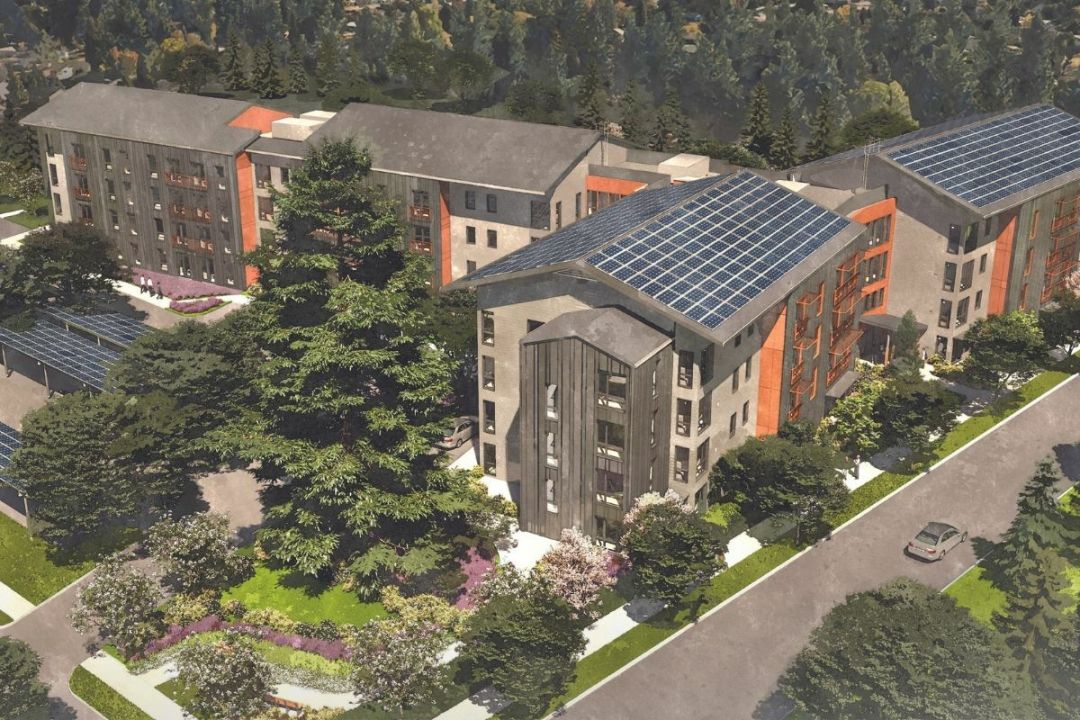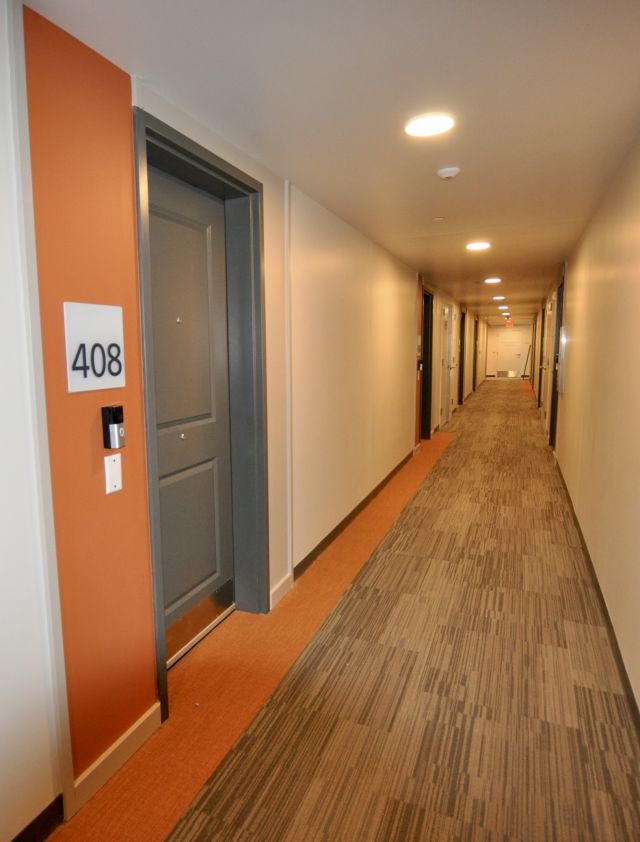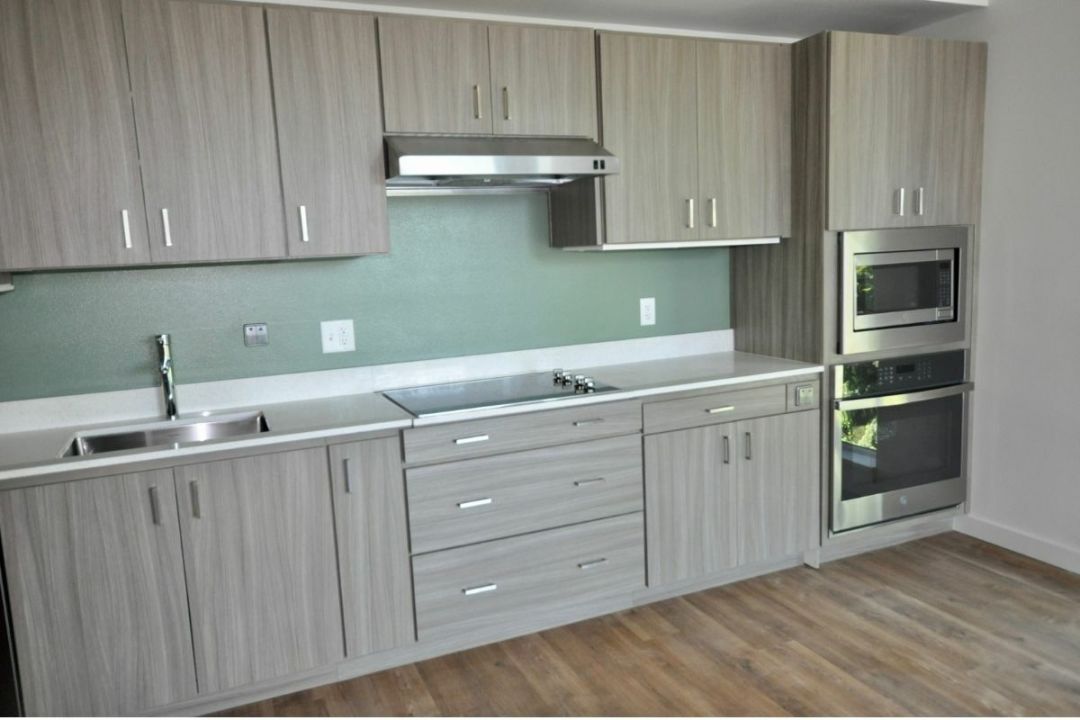Local Nonprofit Spearheads the Largest Net-Zero Energy Affordable Housing Project in the Pacific Northwest

After four years of planning and fundraising, followed by a little more than 18 months of construction, the 150 units of affordable, quality housing on the northwest corner of Albertina Kerr’s Gresham campus are open for residents.
Built on the former footprint of Wynne Watts School, Wynne Watts Commons carries on the name of Dr. Thomas Wynne Watts. A prominent physician and former Board member of the 115-year-old nonprofit, Dr. Watts’s service to Kerr began over a century ago during the influenza epidemic of 1915.
As one of the largest and oldest human services providers in Oregon, Kerr offers short-term crisis psychiatric care and community-based outpatient mental health services for children and teens struggling with life’s challenges. Kerr also provides safe, supportive 24-hour residential care for children, teens, and adults experiencing intellectual and developmental disabilities (I/DD), and employment training with follow-along coaching for adults with I/DD.

Wynne Watts Commons addresses the crucial need for human services workers to have access to safe, affordable housing—one of the most basic and powerful social determinants of health—providing greater workforce stability for those who serve the most vulnerable in our communities, including Kerr caregivers. This results in improved client care. It also includes 30 universally accessible units with state-of-the-art technology for adults with I/DD. These individuals face a critical shortage of quality, affordable, universally accessible housing in an integrated community, and they often earn 30% or less than the average median income.
Powered entirely by solar energy spread out on the roofs of the four-story building and surrounding carports, Wynne Watts Commons is the largest Net Zero Energy affordable housing project in the Pacific Northwest, producing enough renewable energy to fully operate the building so residents have no utility costs (per New Building Institutes Zero Energy Buildings Database). According to Alex Boetzel, Director of Operations and Sustainability at Green Hammer, "Albertina Kerr is proving that it's possible to scale zero energy construction to meet housing needs for all."

“Housing in Portland is incredibly tight, especially for those living on a low income.” said Craig Rusch, chief information officer for Albertina Kerr. “This project allows Kerr to give back by providing a beautiful, safe place for those who care for the most vulnerable in our community, while also offering independent living opportunities to people experiencing I/DD.”
Because fully accessible housing options are rare and costly, the project's development team—Edlen & Co., Ankrom Moisan Architects, and Pence Construction—focused on ways to enhance the universal design with enabling technology; from automated entry doors and wheelchair-friendly roll-up elevator controls to pull-out cooktops and motorized kitchen cabinets. Bedrooms feature RGB controllable lighting to help with mood management and overstimulation.
The universally accessible units also come with access to SimplyHome, a person-centered supportive application, allowing residents to control their environment through a tablet. With one touch, they can adjust lighting, turn on/off fans, open and close window shades, change thermostats, and open and close doors. It also has sensors to monitor the tenant's safety by proactively sending alerts if they need assistance.
Wynne Watts Commons has partnered with CareOregon Club at Rockwood, the local Boys and Girls Club, which is less than one mile away and provides after-school and summer programming for kids ages 6-18. Starting fall 2022, some spaces will be reserved for kids and youth living in Wynne Watts Commons, and any family with children in attendance will benefit from highly subsidized membership fees.
Thanks to the generosity of a number of private donors and foundations, Albertina Kerr exceeded its private fundraising goal of $1.2 million and donated the land. The nonprofit also received $11.2 million through the City of Gresham’s Metro Affordable Housing Bond funds. This project has been made possible by customers participating in PGE’s Green Future SM program through the PGE Renewable Development Fund.
For more information, visit AlbertinaKerr.org
